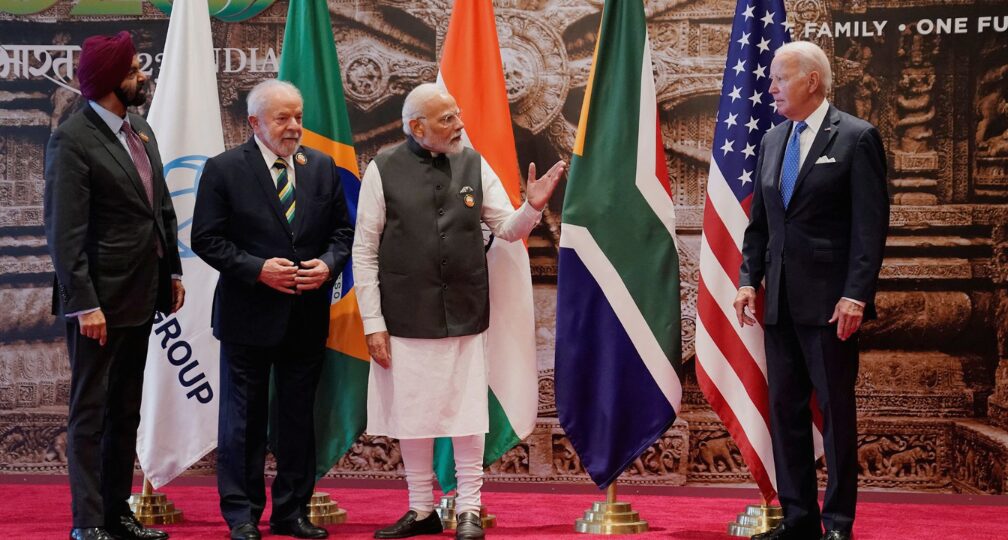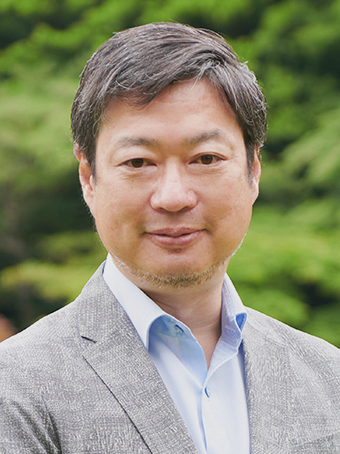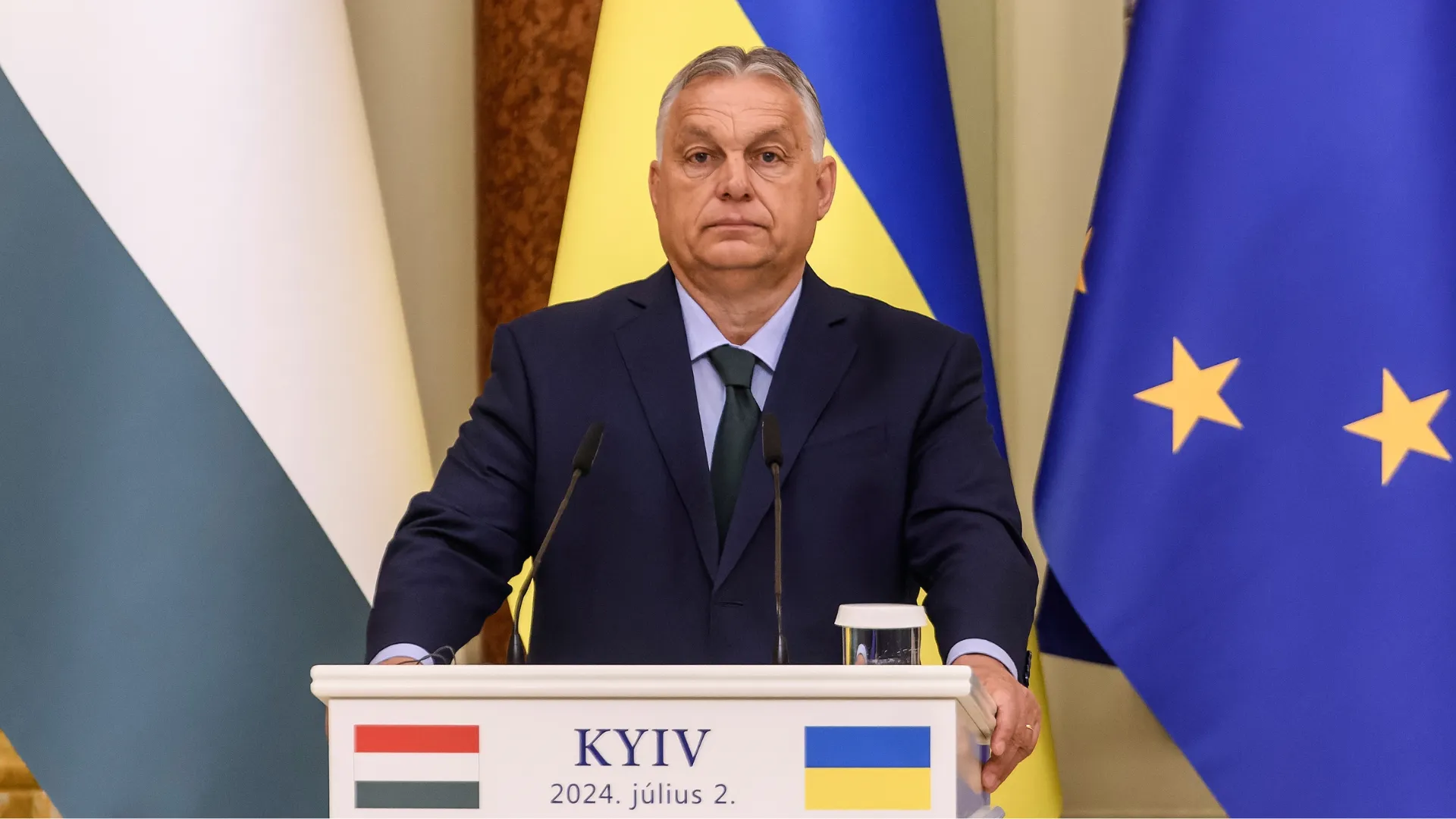The U.S. is unprepared for a multipolar world

In August 2016, as U.S. President Barack Obama was preparing to leave office, he stated that “the U.S. should not act as the world’s policeman.” This reflected a growing belief that Washington should limit its role in securing the international order and be selective as to when to intervene abroad. As president, Donald Trump was a strong critic of Obama but shared this basic foreign policy understanding — as well as expressing frustration at allies’ excessive reliance on the U.S. for their defense.
According to opinion polls, inward-looking views — namely that the U.S. should prioritize domestic issues over international engagement — have become mainstream across party lines. The idea that the U.S. should provide international public goods such as a free trade system, financial institutions and international frameworks for the sake of the global order has receded.
This has overlapped with a diminishing of the United States’ military, economic and technological superiority. The hope that integrating a rising China into the international community would foster cooperation has been shattered. Instead, Beijing has embraced authoritarianism and is gradually approaching parity with the U.S. in military, economic and technological strength.
This shift has intertwined with the perception that emerging countries, led by China, have undermined the principles of free trade by imposing market barriers, regulations and forms of state capitalism. Meanwhile, in the U.S., manufacturing has declined, the middle class has stagnated economically and bipartisan support for strategic competition with China has pushed Washington away from its role as defender of the liberal order.
The Trump administration, though erratic in its actions and rhetoric, embodied this shift. By the second half of 2018, American attempts to engage with China had faded. In their place, Washington embraced a competitive policy aimed at maintaining its superiority through a confrontation with Beijing.
This approach has continued under Biden, with bipartisan consensus for strengthening military ties with Asian allies, controlling emerging technologies, fortifying supply chains and regulating inward investment.
Moreover, Japan’s hope that the U.S. would return to the Comprehensive and Progressive Agreement for Trans-Pacific Partnership did not materialize either with the Republicans or Democrats in power.
Post-Biden foreign strategy
Even as the U.S. retreats from its global role, the outcome of the November presidential election will have a profound impact on the world order.
The U.S. remains the only country with the capacity to intervene militarily all over the globe. It is the most important independent variable in the outbreak and development of conflicts, and the world must pay attention to how the U.S. allocates security resources. Consequently, the next president’s stance on three theaters of conflict — Ukraine, Gaza and Taiwan — will be the most significant factor shaping the world order.
In addition, despite a bipartisan understanding of the competitive nature of U.S.-China relations, there are different schools of thought regarding Washington’s strategic and ideological objectives, which will affect long-term outcomes.
One view insists on maintaining American superiority, arguing that confrontation with China is inevitable and that economic and military countermeasures should be strengthened. Another advocates for managing competition, seeking to avoid a full-scale confrontation and exploring areas of cooperation. The former approach could lead to a spiral of conflict, while the latter risks granting China a strategic advantage by delaying confrontation.
Furthermore, it is estimated that by 2040-2050, the cumulative gross domestic product of G7 countries will be surpassed by that of emerging economies (E7). Despite the inevitable shift in the global balance of power, it is striking that various sectors in the U.S. — such as politics, academia, business and the media — are intellectually unprepared for a multipolar world.
In American academic and policy discussions there is little debate about whether multipolarity would be desirable for the U.S. — as if envisioning the country’s position in such a world is unthinkable. This reflects America’s inability to view its own power and its relations with other nations objectively.
The missing worldview
How are these perspectives reflected in the presidential election?
The Democratic platform, led by Vice President Kamala Harris, emphasizes the importance of maintaining an international order based on democracy, freedom and respect for human rights. It calls for the U.S. to lead in strengthening economic and technological cooperation with allies and partners to maintain a fair rules-based system. It also advocates for the prudent use of military power, with a focus on diplomacy and leadership based on values.
On the other hand, the Republican platform, led by Trump, reflects an “America First” ideology, relying on the concept of “peace through strength” based on a robust national defense apparatus. The party’s primary goals are to achieve energy independence, ensure that the U.S. remains the world’s most powerful economy and military, and maintain a strong position vis-a-vis its competitors.
While there are differences between these platforms, they are surprisingly similar in their focus on middle-class interests and minimizing military engagement abroad. Unfortunately, there is little discussion in either about three key perspectives for U.S. foreign policy: Addressing the three theaters of conflict, determining the long-term outcomes of strategic competition with China and adapting to a multipolar world.
The mismatch
Therefore, a serious mismatch exists between American foreign policy goals and global trends. If Democrats want to maintain the liberal world order, they must define their relationship with non-democratic states since the objective cannot be achieved by strengthening ties with democracies alone.
The Republican platform, which proposes to increase defense spending without articulating the principles for overseas military intervention, presents another contradiction: Maintaining U.S. dominance without offering a vision of the desired world order.
At the root of these problems is America’s inability to face the reality of multipolarity. While the country turns inward to address domestic concerns, the world is transforming. China is expanding its Belt and Road initiative, Russia is reentering the global market as if the Ukraine war never happened, India is increasing its strategic autonomy and countries like Turkey, Malaysia, Thailand and Indonesia are moving closer to joining BRICS. The U.S. cannot underestimate these changes.
America’s strategy should be to encourage its allies and partners to face this multipolar environment on their own, pursuing diplomacy independently. Key areas include Japan’s New Plan for a Free and Open Indo-Pacific that emphasizes engagement with the Global South, South Korea’s expansion into emerging markets, Europe’s involvement in Africa and the Middle East, and Australia’s role in the South Pacific and global mineral markets.
Conversely, positing American alliances and partnerships as an extension of U.S. expansionism might increase collective power against competitors, but could also ossify allies and partners’ strategies. American officials are often unaware of the discomfort felt under U.S. leadership, delaying collective adaptation to global changes.
Instead, promoting greater autonomy among allies is crucial. While they may at times act in conflict with American ideals, the world has become much more complex than the U.S. realizes. A simplistic view was acceptable when America was the unrivaled superpower, but multipolarity is now a reality. Allies must face this world head-on, contributing to a stable international order and returning these contributions to the alliance as diplomatic assets.
(Photo Credit: Shutterstock)
[Note] This article was posted to the Japan Times on November 1, 2024:
https://www.japantimes.co.jp/commentary/2024/11/01/world/us-foreign-policy-multipolar-world/

Geoeconomic Briefing
Geoeconomic Briefing is a series featuring researchers at the IOG focused on Japan’s challenges in that field. It also provides analyses of the state of the world and trade risks, as well as technological and industrial structures (Editor-in-chief: Dr. Kazuto Suzuki, Director, Institute of Geoeconomics (IOG); Professor, The University of Tokyo).
Disclaimer: The opinions expressed in Geoeconomic Briefing do not necessarily reflect those of the International House of Japan, Asia Pacific Initiative (API), the Institute of Geoeconomics (IOG) or any other organizations to which the author belongs.


Managing Director (Representative Director), International House of Japan,
President, Asia Pacific Initiative
JIMBO Ken is Professor at the Faculty of Policy Management, Keio University. He served as a Special Advisor to the Minister of Defense, Japan Ministry of Defense (2020) and a Senior Advisor, The National Security Secretariat (2018-20). His main research fields are in International Security, Japan-US Security Relations, Japanese Foreign and Defense Policy, Multilateral Security in Asia-Pacific, and Regionalism in East Asia. He has been a policy advisor for various Japanese governmental commissions and research groups including for the National Security Secretariat, the Ministry of Defense and the Ministry of Foreign Affairs. His policy writings have appeared in NBR, The RAND Corporation, Stimson Center, Pacific Forum CSIS, Japan Times, Nikkei, Yomiuri, Asahi and Sankei Shimbun. [Concurrent Position] Professor, Faculty of Policy Management, Keio University
View Profile-
 Fed-Treasury Coordination as Economic Security Policy2026.02.13
Fed-Treasury Coordination as Economic Security Policy2026.02.13 -
 Challenges for Japan During the U.S.-China ‘Truce’2026.02.12
Challenges for Japan During the U.S.-China ‘Truce’2026.02.12 -
 India and EU Sign Mother of All Deals2026.02.09
India and EU Sign Mother of All Deals2026.02.09 -
 Orbán in the Public Eye: Anti-Ukraine Argument for Delegitimising Brussels2026.02.04
Orbán in the Public Eye: Anti-Ukraine Argument for Delegitimising Brussels2026.02.04 -
 Trump, Takaichi and Japan’s Strategic Crossroads2026.02.03
Trump, Takaichi and Japan’s Strategic Crossroads2026.02.03
 Oil, Debt, and Dollars: The Geoeconomics of Venezuela2026.01.07
Oil, Debt, and Dollars: The Geoeconomics of Venezuela2026.01.07 Orbán in the Public Eye: Anti-Ukraine Argument for Delegitimising Brussels2026.02.04
Orbán in the Public Eye: Anti-Ukraine Argument for Delegitimising Brussels2026.02.04 When Is a Tariff Threat Not a Tariff Threat?2026.01.29
When Is a Tariff Threat Not a Tariff Threat?2026.01.29 A Looming Crisis in U.S. Science and Technology: The Case of NASA’s Science Budget2025.10.08
A Looming Crisis in U.S. Science and Technology: The Case of NASA’s Science Budget2025.10.08 Navigating Uncertainty in U.S. Space Policy: Decoding Elon Musk’s Influence2025.04.09
Navigating Uncertainty in U.S. Space Policy: Decoding Elon Musk’s Influence2025.04.09












